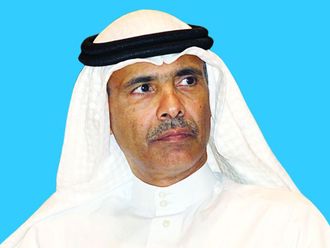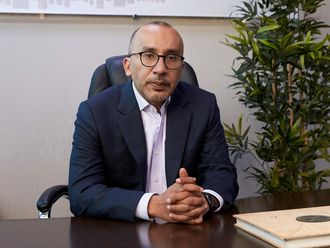It does seem that Egyptian President Abdul Fatah Al Sissi has placed economic issues at the top of his government’s agenda given the current stability after years in which the economy lost a great deal of its capacity and suffered heavy losses that cannot be easily compensated.
This trend is in evidence through the firming up of the domestic situation and restructuring of the Egyptian economy on the one hand, and the creation of new bilateral economic and trade partnerships with various countries and blocs on the other.
At the domestic level, some sectors have been restructured, including energy, to respond to emerging variables. Moreover, policies to reduce the general budget deficit have been set up, alongside those to achieve sound growth rates in the coming years. This looks to be the case especially as large projects have been announced, such as the establishment of a new administrative capital in cooperation with the UAE at a cost of $150 billion (Dh550.5 billion).
At the external level, in addition to the remarkable development of economic ties with countries such as Russia and China — which will be important outlets for Egyptian exports — President Al Sissi led a trade gathering of 26 African countries in which he announced the establishment of a free trade area comprising three African blocs — the Common Market for Eastern and Southern Africa, the Southern African Development Countries and East Africa — to abolish trade restrictions and custom fees, while facilitating the movement of goods and services between these countries.
This will contribute to a large market of 625 million people, or equivalent to 10 per cent of the world’s population and 52 per cent of Africa’s, which exceeds the population of the EU.
The economic size of the countries within the new free trade area is $1.3 trillion, which is a little less than the size of the GCC economy, while its total trade reaches $1.2 trillion annually.
Moreover, the volume of trade is expected to increase after the actual application of the new agreement by 2017. If this date is committed to without any delay, which is what Al Sissi affirmed in his speech at the Conference held in Sharm Al Shaikh.
Certainly there are some obstacles that could arise before or during the initial application, such as confirming the cancellation in customs duties, the determination of the origin of national products and compliance with legal frameworks.
Increase competitiveness
However, the 26 member nations of the new African free trade area have the potential and capability to take advantage of this agreement. They can contribute to creating jobs and thus reduce the worsening unemployment situation. They will also open the doors of 26 markets for goods to move free of any fees, which will increase their competitiveness.
At the same time, this will encourage the establishment of joint ventures, through opportunities that will be available on the grounds that there is a single commercial market. This will include infrastructure projects necessary to develop the trade links and which will in turn contribute to lowering the high cost of transport.
By virtue of its economic and commercial importance and the presence of the Suez Canal, Egypt can be the locomotive for this group, by contributing to the many future gains that can be expected. Especially, given the fact that the Egyptian economy needs to accelerate its growth rates to make up for missed opportunities and the degradation it was subjected to during the sabotage era and the bad administration under former president Mohammad Mursi.
Egypt has a lot of components that can turn it into an economically advanced country — natural resources, qualified and experienced people, a prime geographical location, an appropriate infrastructure and trade relations with countries and economic blocs, including the Gulf states which have consistent backed it through the years.
However, all this needs stability and an economic vision, such as that enjoyed now by Al Sissi. Some of its aspects are clearly seen in the trends and economic policies.
Dr Mohammad Al Asoomi is a UAE economic expert and specialist in economic and social development in the UAE and the GCC countries.












